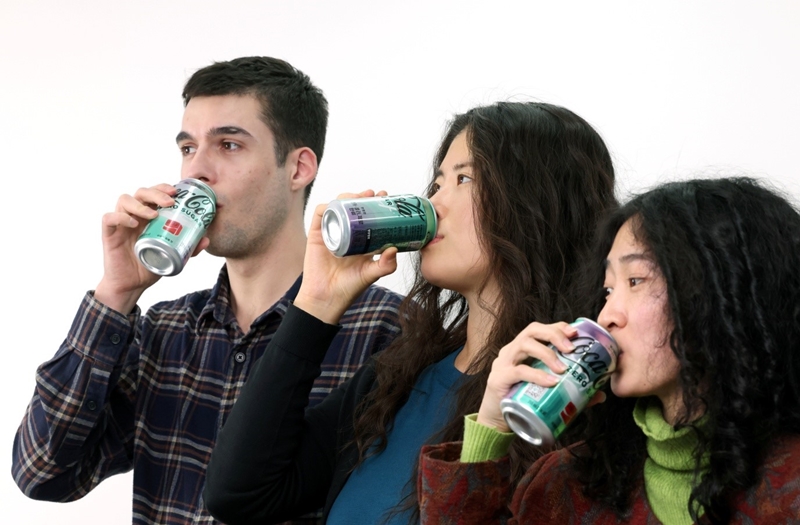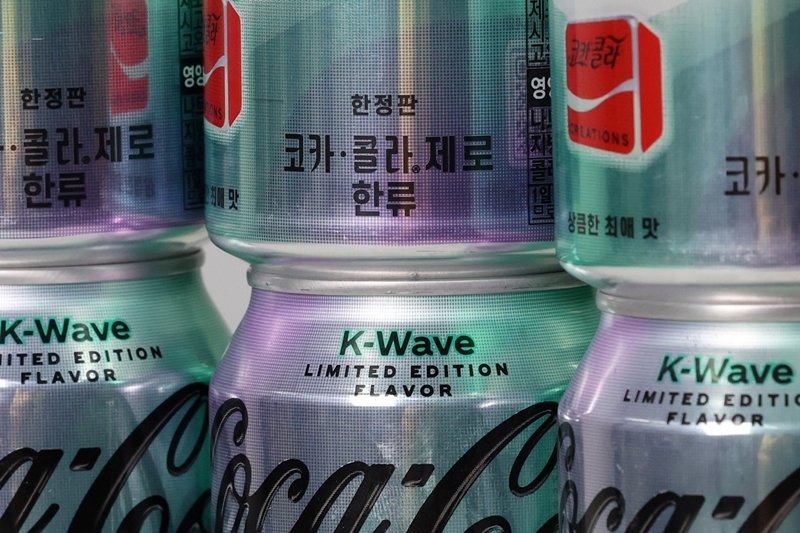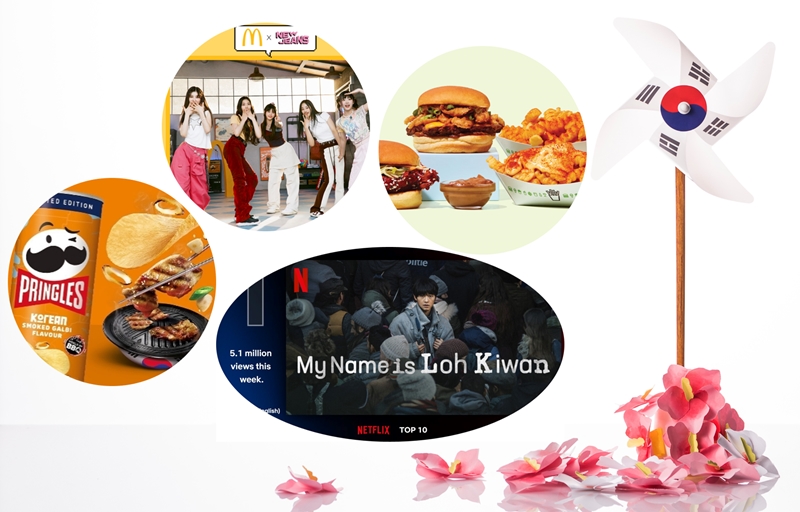By Lee Kyoung Mi
A can of Coke is inscribed with the expression "Hallyu (K-Wave)," with "Hallyu" and "refreshing favorite flavor" written in Hangeul.
For the first time in its 130-year history, Coca-Cola has released a can with terms in a language other than English.
So what exactly does this "refreshing favorite flavor" taste like? Korea.net staff writers took sips to find out.

Korea.net staff writers (from left) Charles Audouin, Kim Hyelin and Cao Thi Ha on March 7 try the K-Wave edition of Coca-Cola Zero Sugar. (Jeon Han)
Among the reactions were "It tastes like bubble gum or candy," "It's a bit unfamiliar since it's a bit different from regular Coke, but has a memorable taste" and "It says 'favorite taste' but does this sweetness convey feelings toward someone's beloved?"
They agreed that the K-Wave edition was sweeter than regular Coke, with one saying, "It'll go well with spicy Korean foods like tteokbokki (spicy rice cake) or yangnyeom (sweet and spicy) chicken."
"We used the motif of K-pop, the center of Hallyu influencing the global market," Coca-Cola said. "The 'refreshing favorite flavor' contains the emotion and special feeling you get when first falling in love with your favorite K-pop artist."
The limited edition K-Wave is available in 36 countries including Korea, the U.S., France, Japan, Spain and Singapore.

This K-Wave edition of Coca-Cola Zero Sugar on the can has the terms "Hallyu" and "refreshing favorite flavor" written in Korean. Oana Vlad, Coca-Cola's senior director for global brand strategy, on Feb. 20 told a meeting in Seoul that this version was inspired by the "infinite dedication of the world's most passionate K-pop fans," adding that imagination toward K-pop was incorporated into this beverage. (Jeon Han)
Global corporations are eagerly paying more attention to Korea amid Hallyu's elevated standing.
McDonald's in 2021 released a BTS set in collaboration with the K-pop boy band in 50 countries and a burger promoted by the girl group NewJeans in February last year.
Fellow American burger chain Shake Shack in January this year released limited editions of a Korean-style fried chicken burger using gochujang (spicy red pepper paste), baek (white) kimchi to replace cole slaw, and a Korean-style barbecue burger and fries. Earlier in 2021, it put out a gochujang burger and chicken.
The U.S. potato chips brand Pringles last month launched the limited edition Korean smoked galbi (grilled ribs) flavor in Korea, Japan, Australia, Taiwan and Hong Kong.

(From left clockwise) Pringles' Korean smoked galbi (grilled ribs) flavor; a McDonald's commercial starring girl group NewJeans; Shake Shack's Korean-style burger and fries; and the Netflix film "My Name is Loh Kiwan," which from March 4-10 racked up 5.1 million views to top the streaming site's weekly chart for films not in English (Pringles' Instagram account, McDonald's Facebook page, Shake Shack's website and Netflix)
Hallyu's spread has gone beyond food and beverages. Leading over-the-top platforms such as Netflix and Disney Plus have unsurprisingly made big investments in the production of Korean content.
Industry sources and experts agree that global corporate interest in Korea and marketing incorporating Korean elements will keep expanding.
km137426@korea.kr